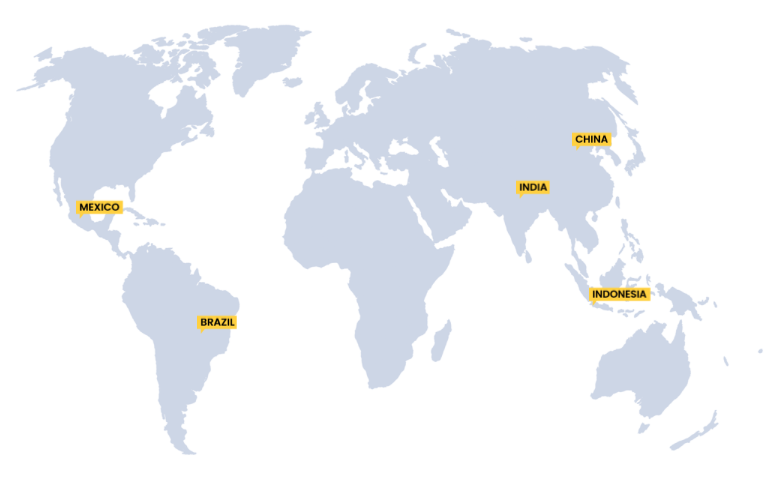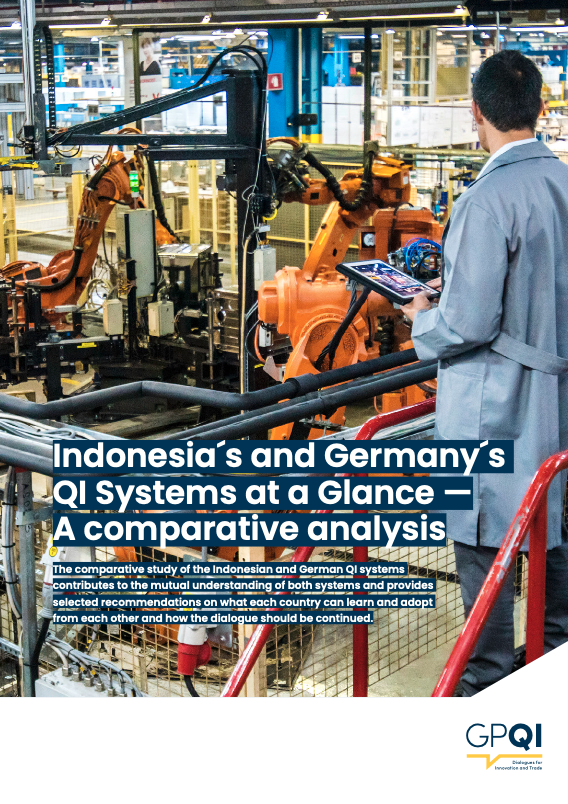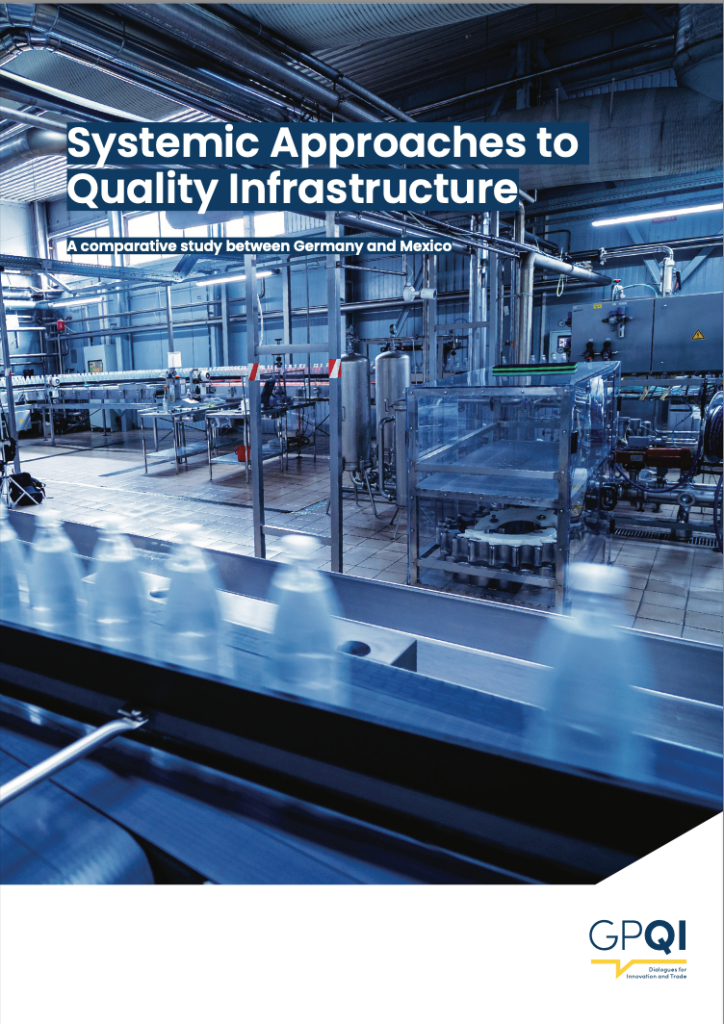Quality infrastructure (QI) systems differ between countries.
Germany can look back on a particularly long history of QI development. The predecessor of the PTB was the first National Metrology Institute (NMI) globally, and the German DIN is one of the pioneering National Standards Bodies (NSB). Accreditation was later introduced and, during European integration, merged into one National Accreditation Body (NAB) carrying the acronym DAkkS in Germany. However, the term “quality infrastructure” is a relatively new terminology in Germany.
The Federal Ministry of Economics and Climate Action (BMWK) is Germany’s lead ministry for quality infrastructure. In 2017, BMWK set up the Global Project Quality Infrastructure (GPQI) to exchange information on quality infrastructure with important trading partners in large emerging countries, such as Brazil, China, India, Indonesia and Mexico.

Elaborating comparative studies on quality infrastructure systems helps stimulate dialogue between trade partners. Commissioned by the GPQI project, two studies were written recently by Christian Schoen and Ulrich Harmes-Liedtke from Mesopartner (each in collaboration with national consultants Mahdha Flores-Campos from Mexico and Ellia Kristiningrum from Indonesia) to compare Germany’s QI with that of Mexico and Indonesia.
Both studies follow a similar structure. After a general introduction, the QI systems of the respective trade partners (Indonesia or Mexico) and of Germany are presented. The focus is on the legal framework and the individual QI system components —standardization, metrology, conformity assessment, accreditation, market surveillance, and product safety. The subsequent chapter provides a detailed comparison of each element of the QI system between Germany and Indonesia or Mexico.
To illustrate the comparisons, the functioning of the QI system is described using the example of products such as an electric motor (Indonesia) and a refrigerator (Mexico). The similarities and differences between the national requirements and systems become apparent here.
In principle, QI in the three countries is integrated into the same frameworks of mutual recognition of the international cooperation organisations for metrology (BIPM, OIML), standardization (ISO, IEC, and ITU), and accreditation (ILAC and IAF). However, national peculiarities concerning legal frameworks, governance structures, and competence allocation to the national QI bodies exist. Both studies elaborate on these national idiosyncrasies and discuss how they influence the performance of the respective QI systems.
The QI systems in Germany, Indonesia, and Mexico face the common digitalization and sustainable development challenges. Organizing dialogue and exchanging experiences between leading QI institutions in these countries would be particularly important and promising in finding QI-related solutions to the significant challenges of our time.
References
GPQI 2023, Indonesia’s and Germany’s QI Systems at a Glance: A Comparative Analysis
GPQI 2023, Systemic approaches to quality infrastructure: a comparative study between Germany and Mexico



By addressing the existing gaps and promoting international collaboration, we can create a world where quality infrastructure knows no borders.
LikeLike
The globalization of Quality Infrastructure (QI) and its advancement within the context of integration processes represent the inevitable trajectory for the economic development of nations and regions. The digital transformation of essential elements such as standardization, metrology, and accreditation stands out as a pivotal force propelling progress in this direction
LikeLike